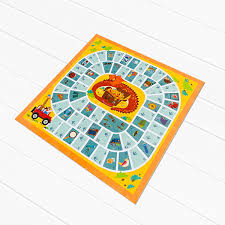Game Boards, have enjoyed a resurgence in popularity over the past few years, captivating players of all ages with their engaging mechanics and social interactions. At the heart of every board game lies the game board, an essential component that not only serves as the playing surface but also shapes the gameplay experience. This article delves into the various types of game boards, their significance in board gaming, and how they contribute to the enjoyment and strategy of games.
What Are Game Boards?
A game board is a flat surface on which a game is played, typically featuring a design that outlines the layout, objectives, and rules of the game. Game boards can vary widely in size, complexity, and materials, ranging from simple cardboard designs to intricate, hand-painted wooden surfaces. The design of a game board often reflects the theme and mechanics of the game, guiding players in their actions and strategies.
Types of Game Boards
- Modular Boards: These boards are composed of individual tiles or sections that can be rearranged for each game session. Games like “Carcassonne” and “Gloomhaven” utilize modular boards to create varied landscapes and experiences, encouraging replayability and strategic exploration.
- Fixed Boards: A fixed board features a static layout that remains the same for each game session. Examples include classic games like “Monopoly” and “Chess,” where the fixed board design establishes the game’s flow and strategies.
- Player Boards: In many modern board games, individual player boards are used to track resources, actions, or personal objectives. Games like “Terraforming Mars” and “Scythe” incorporate player boards to enhance the gameplay experience and provide players with unique paths to victory.
- Double-Sided Boards: Some games feature double-sided boards, offering different gameplay experiences or difficulty levels. This design allows for versatility and can cater to various player preferences.
The Significance of Game Boards
Enhancing Gameplay
Game boards play a crucial role in facilitating gameplay mechanics. They visually represent the game state, guide player actions, and provide a reference point for rules and objectives. A well-designed board can enhance the immersive experience, drawing players into the game’s theme and narrative.
Encouraging Strategy
The layout of a game board often influences the strategic decisions players must make. For instance, in “Ticket to Ride,” the placement of train routes on the board shapes players’ tactics and long-term planning. Similarly, in “Catan,” the arrangement of resources on the board determines how players interact and negotiate with one another.
Fostering Social Interaction
Board games are inherently social experiences, and the game board facilitates interaction between players. Whether it’s through competitive play, cooperative challenges, or negotiation, the board serves as a focal point for players to connect, strategize, and engage with one another.
Aesthetic Appeal
Beyond functionality, game boards can be works of art. Many modern board games feature stunning illustrations, thematic designs, and high-quality materials that enhance the overall aesthetic appeal. A beautifully crafted board can elevate the gaming experience, making it more enjoyable and memorable for players.
The Evolution of Game Boards
The design and materials used for game boards have evolved significantly over the years. Traditional board games often featured simple cardboard designs, while modern games may utilize advanced printing techniques, custom materials, and unique shapes. The rise of crowdfunding platforms like Kickstarter has also allowed indie designers to create innovative board games with exceptional boards, often experimenting with materials such as wood, metal, and even 3D elements.
Conclusion
Game boards are the heart of board gaming culture, providing the essential framework for gameplay, strategy, and social interaction. From modular designs to fixed layouts, the diversity in game boards reflects the creativity and innovation within the board gaming community. As players continue to embrace the joy of tabletop gaming, the significance of game boards will undoubtedly remain central to the experience, fostering connection, competition, and endless fun. Whether you’re a casual player or a dedicated board game enthusiast, the game board serves as a canvas for memorable adventures and shared experiences.




